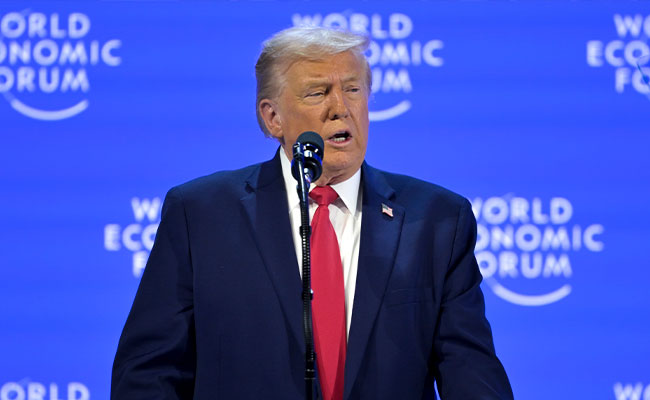Bengaluru: Senior Congress leader and former KPCC Secretary, S Mohanadass Hegde, has submitted a detailed strategic policy proposal to the Government of India, urging immediate steps to either nationalize or strictly regulate multinational corporations (MNCs) such as Amazon and other Fortune 500 companies operating in India. The proposal highlights serious concerns over consumer rights, data privacy, economic manipulation, and digital sovereignty.
Hegde has argued that India’s digital and financial autonomy is under threat due to unchecked corporate practices by global tech and e-commerce giants. Drawing inspiration from India’s history of nationalizing key sectors like insurance, banking, and telecom, Hegde proposes a similar framework for handling MNCs that influence financial flows and consumer behavior in the country.
Key Issues Highlighted in the Proposal:
1. Amazon Pay Balance and Consumer Deprivation
The policy document flags Amazon Pay as a “hoax,” alleging that unrefunded balances—estimated to exceed ₹1,000 crore—are locked within the platform. According to Hegde, these funds can only be spent at select partners such as Tata 1mg, BigBasket, Ola, and Rapido, severely limiting the purchasing freedom of Indian consumers.
“Even if just one crore Indians have an average of ₹1,000 stuck in Amazon Pay, that amounts to ₹1,000 crore being retained by a private entity for speculative financial activity,” the proposal notes. Hegde adds that this directly affects India’s GDP, consumer dignity, and tax revenue. He also cited individual cases, including one where a buyer reportedly has ₹22,000 locked as a “gift balance” with Amazon for years.
2. Privacy Violations and Lack of Constitutional Oversight
Hegde warns that employees of MNCs in India are not bound by constitutional obligations towards Indian citizens. Instead, they follow internal corporate policies which often lead to:
Unseen notes and markings on customer profiles
Targeted digital advertising based on private data
Snooping on mobile apps and usage behavior
He alleges that such practices amount to criminal breaches of privacy, especially dangerous when it involves sensitive information from government employees and national institutions. He also draws parallels with India's action against WhatsApp post-mob lynching incidents, calling for a similar “zero-invasion policy” against companies like Amazon, Google, and Meta.
3. Need for a Unified National Digital Regulator
The proposal urges the creation of a Single National Digital Consumer Regulator to:
Mandate automatic refunds of unused wallet balances to user bank accounts
Enforce a blanket ban on subliminal advertising and product suggestions
Introduce a Consumer Data Protection Code rooted in Indian constitutional values
4. Indigenization of Corporate Practices
Hegde stresses that India must stop blindly adopting Western consumer models. He says corporate strategies must be aligned with India’s cultural, economic, and social priorities. As part of this indigenization drive, he has called for the rejection of harmful external practices such as:
Genetically Modified Organisms (GMOs)
Low-quality animal feed in dairy industry, imported from Western systems
Revisiting the Idea of Nationalization
The document points out that if companies like LIC, Indian Oil, and BSNL could be nationalized for public good, there is no reason why India cannot consider doing the same with foreign digital giants. Hegde says nationalization will:
Protect consumer rights
Increase transparency in governance
Help combat black money and hawala networks
Enable centralized auditing, quality control, and regulation
He proposes that all national procurement and government-linked services should function under a single brand with one audit system to enhance efficiency and reduce costs.
Call for National Dialogue
Inspired by the article “The Big Idea” published on the website inthesetimes.com, the proposal concludes with a patriotic appeal to the central government to consider the document as part of a larger national conversation on Digital Sovereignty, Economic Justice, and Consumer Protection.
Hegde has requested that relevant ministries be directed to evaluate the concerns raised and initiate multi-stakeholder consultations.
“India is a unique democracy. Everything applicable to the home countries of multinational companies cannot be implemented here at their will. We need our own ethical capitalism rooted in Indian values,” he states in the concluding note.
What the Proposal Demands:
Refund of unutilized Amazon Pay balances to bank accounts
Zero digital surveillance and advertisement policies
A new Consumer Data Protection Code
Creation of a central regulator for digital consumer services
Long-term vision to nationalize or strictly regulate MNCs
Let the Truth be known. If you read VB and like VB, please be a VB Supporter and Help us deliver the Truth to one and all.
Ranchi (PTI): The body of a migrant worker from Jharkhand’s Giridih district killed in Saudi Arabia in October last year has arrived at Ranchi Airport, but his family refused to accept it over pending compensation, officials said.
Shikha Lakra, team leader of the state migrant control cell, told PTI that, before taking the body of Vijay Kumar Mahato, the family is demanding compensation from the private company where he used to work in the Arab country.
Mahato was killed in an alleged crossfire between the police and criminals.
“Since it was a bullet injury case, the matter is before a court in Jeddah. The final compensation may depend on the court’s decision,” Lakra said.
“The Indian Embassy informed us about the body’s arrival, and coordination was done with district authorities. Our role is limited to coordination in cases involving overseas employers and foreign jurisdiction,” she added.
Giridih Deputy Commissioner Ram Niwas Yadav said the authorities will try to convince the family to perform the last rites.
“We have already sanctioned Rs 5 lakh under the government scheme for migrant’s deaths abroad. The compensation payment might take some time,” he said.
The body is currently at the mortuary of Rajendra Institute of Medical Sciences (RIMS) in Ranchi.
The Family members said they will only accept it if the company provides written assurance regarding compensation. “Without that assurance, we will not receive the body,” said Ram Prasad Mahato, the deceased’s brother-in-law.
Mahato, a native of Dudhpaniya village in Madh Gopali panchayat under Dumri block, was employed as a tower line fitter. His family said he was struck by a bullet during a gunfight between local police and an extortion gang and later succumbed to his injuries.
Social activist Sikander Ali said Mahato is survived by his wife, two young sons aged five and three, and elderly parents.





